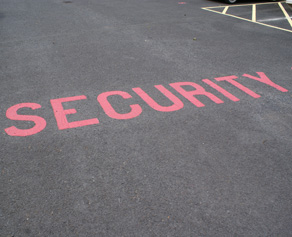The Security Industry Authority (SIA) since last year has gone through the most thorough review of its approved contractor scheme since it began, ten years ago. On the eve of a roadshow around the UK to announce the results – before they come into force in April 2019 – Stephen McCormick, director of operations at the regulator, spoke to Professional Security.
Does a list of withdrawn approvals for example mean that the ACS is good – that it has standards that it keeps, although it might seem maddeningly slow to come to pass, sometimes – or bad, suggesting that the bar is set too high, or that the companies shouldn’t have been let in, in the first place?
A room full of ACS company directors (to paraphrase Stephen) will never feel the same way about ACS: it’s either too exclusive or not exclusive enough. If that means that ACS all along has to be something of a compromise, the review by a firm of consultants, Pye Tait, did find that on the whole ACS was ‘ok’ to approved companies, as the now outgoing chief executive Alan Clamp put it to the Security TWENTY 17 London conference in November 2017. Likewise the SIA’s changes to the ACS, as Alan Clamp trailed, are tweaks rather than fundamental.
Speaking to Stephen McCormick, it becomes clear that the ACS is not only a benchmark to reach, so that a company can put the logo on their notepaper – a basic standard that you have to have, but that doesn’t really tell you very much about an ACS firm, according to critics. To the SIA the ACS is a process, to drive standards, as shown in a company’s year by year ACS assessment score; and a way for the SIA to carry out its function. Likewise the SIA’s review of qualifications and skills, featured in the October 2018 print issue of the magazine.
The review since last year took in telephone and online surveys, workshops and focus groups. The SIA will be assessing against the changed ACS from April 1, 2019, which McCormick did not think would be too onerous. He spoke of a ‘streamlined self-assessment work book’, with some indicators removed and some combined with others where there was, it was felt, some duplication. He spoke of more focus on service delivery, and away from process. In other words, outcomes – the service that a business provides to a customer, which will fit with the SIA task of aiding protection of the public. Expect to see online guidance, by about April.
While it was not an avenue that Professional Security pursued, a regulator being outcome-based is in line with others, such as the Civil Aviation Authority (CAA) on security of airports, the idea there being that rather than setting targets of throughput of passengers through screening – which can lead to skewed practices, as workers go through the motions to comply – practitioners focus on outcomes, what they’re there for, in aviation’s case safe and secure flights, by tackling what the actual risks are. In UK regulatory terms, it’s called ‘right touch‘.
An aspect of the ACS that will never please everyone is ‘eligibility’ – who gets to join. Put another way, who should join the club; even small contractors, ‘micro’ companies employing a handful of people? How do you set the ‘fit and proper’ test? McCormick said that the regulator has ‘certainly become a lot firmer on PAYE’. The SIA recently reported a partnership with HM Revenue and Customs. The vast majority if SIA licence holders, he said, should be considered as employees; being ‘self-employed’ is something that door staff, most typically, would have to justify. The SIA is also raising its metaphorical eyebrows at the minimum number of people that a contractor must supply; at least two licensed operators before it would be considered for ACS. The SIA has decided on more background checks for those associated with a business, such as ‘shadow directors’. There the SIA is seeking to ensure that a business going for ACS does not have backers of the firm ‘hiding’. As McCormick added, this is what ACS firms have asked for – naturally, as those firms want the integrity of the ACS as much as the SIA does.
The nuts and bolts of the scheme are one thing; how well it’s marketed and supported, and how clearly the non-security world gets it, another. The SIA is looking to develop a ‘resource centre’, probably online, for applicants and ACS firms; which might help companies go for ACS without bringing in (at a cost) consultants.
Separately, the SIA recently announced a review of qualifications and skills required for SIA licence applications, and as part of security careers and progression; to be completed by the end of 2019.
The SIA is running seminars about the changes to the ACS, due to come into force in April 2019. The dates and venues are: Wednesday October 3, Belfast; Tuesday, October 9, Glasgow; Tuesday, October 16, Bristol; Tuesday, October 23, Leeds; Thursday, October 25, Birmingham; and Tuesday, October 30, London.
About 850 contractors are ACS-approved. It is an offence under the Private Security Industry Act 2001 for a company to claim it is an approved contractor when it is not; this includes indirectly claiming to be an approved contractor by displaying the ACS accreditation mark.
For more ACS statistics visit https://www.sia.homeoffice.gov.uk/Pages/acs-profile.aspx.
More in the October and November 2018 print issues of Professional Security magazine.










